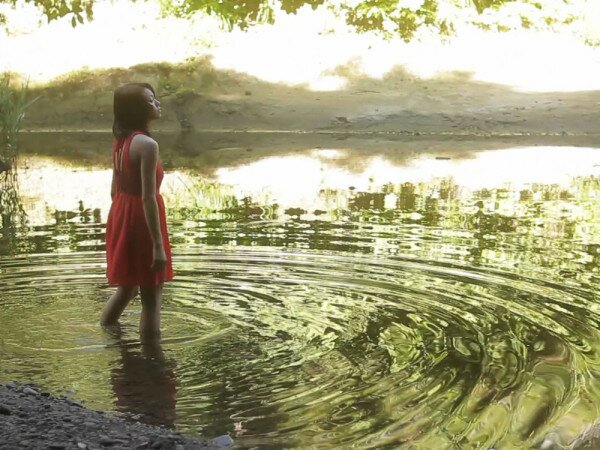Sakuko is an 18 year old student, who travels with her aunt to Mikie from Tokyo to a seaside town where they plan to housesit for the summer. Mikie is working on an academic project and Sakuko is preparing for her university entrance exams.
But the summer days move slowly and Sakuko soon makes a friend, Takashi, a simple young lad who was sent to the town as a refugee from Fukushima and the Great East Japan Earthquake. Takashi has dropped out of school and works at love-motel managed by Ukichi, a old friend of Mikie.
Au Revoir l’ été literally translates as goodbye summer and many of us can remember a summer holiday where we felt keenly aware of being caught between adult and adolescent worlds. Sakuko finds herself in just such a place; aware she is no longer a child, confident and independent in herself as a teenager, yet feeling ill-equipped to handle the decisions of adult life.
Director Koji Fukada is well known for making thoughtful independent films and Au Revoir l’ été continues in the tradition of Human Comedy In Tokyo (2008) and hospitalité (2010). Au Revoir l’ été is a fluid study in perspective and perception. An amusing, carefully worded script builds steadily over the course of the first 80 minutes to an extraordinary dinner scene between Mikie, Ukichi, Sakuko, Mikie’s friend, a visiting academic and Ukichi’s somewhat wayward daughter.
Here deceptions and hypocrisies are revealed and we start to see one of Au Revoir l’ été’s masterstrokes, the way the adults in the film seldom manage to say what they really mean, often hiding behind a veneer of falseness and how the younger cast members, especially Sakuko and Takashi struggle to come to grips with this.
Despite the winsomeness of the storytelling (which in many ways parallels Éric Rohmer’s Pauline At The Beach), the film feels longer than its already generous 125 minutes. While some of the slower scenes feel well paced, there are others that drag and add little to our understanding of either the characters or the place where they find themselves.
Still, there is much to admire in Au Revoir l’ été – from the rich yet subtle costuming to the natural dialogue and excellent performances from pretty much all the cast (especially Fumi Nikaidô, Mayu Tsuruta and Kiki Sugino). This is a memorable, charming and beautiful film.
